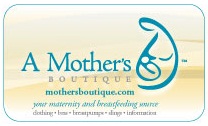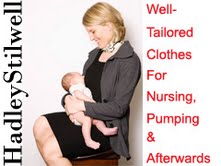Are Lactation Consultants too Pricey?
by Amber McCann, IBCLC | May 2, 2011 12:02 am
Last year, the New York Times published an article about lactation consultant Freda Rosenfeld. A reader responded that the fee charged by lactation consultants is outrageous…depending on where you live, it can cost between $120 and $200+ per session. It is wise for parents and parents-to-be to understand and evaluate what IBCLCs do and ask “Are IBCLCs worth it?” We come back with a resounding “Yes!”
Why hire an IBCLC?
Families who seek the help of an IBCLC (International Board Certified Lactation Consultant) get the gurus of breastfeeding knowledge and support. If you had a toothache, you would seek the care and advice of someone who is an expert on teeth, your dentist; if you were concerned about your heart, you’d find the most qualified, expert cardiologist. An IBCLC is an expert on breastfeeding. By finding one as you begin breastfeeding, you equip yourself with the very best support available. A strong support system can significantly help you meet your breastfeeding goals. A good IBCLC can be the key player on your A-Team.
What do you get for your money?
IBCLCs work in a wide variety of places and contexts. Some work in hospitals just after birth and others research and further the understanding of breastfeeding. You can also find IBCLCs in organizations that promote maternal/child health and nutrition, such as WIC. IBCLCs are a varied group in terms of background, areas of specialty, and communication styles, but they stand firm that Babies are Born to Breastfeed.
Many moms, through the course of pregnancy and birth, find that what they need is one-on-one help when they have questions or breastfeeding seems difficult. Private practice IBCLCs fill this role. A lactation consultant in private practice is self-employed, or she might work in partnership with one or two other IBCLCs. While $120-$200 seems like a lot for the time required for a consultation, think of it this way: you get years of study and experience, the full attention of an expert focused on YOU, follow up via email, phone or text, a listening ear, detailed reports for health care providers (putting everyone on the same page for your care), and someone who is required to learn, learn, learn how to support you. Your IBCLC spends time reading research, connecting with other lactation professionals, and staying up to date on the latest methods, trends, and breastfeeding products. Adding all that up, it’s a bargain!
Are there any IBCLC’s in my community?
Hopefully, YES! Many hospitals and organizations that support mothers recognize the expertise board-certified lactation consultants bring. Asking your health care provider, childbirth educator, and doula about breastfeeding resources in your community can help you beat the Booby Traps! These people can recommend IBCLCs who want to support your desire to breastfeed.
Unfortunately, some families struggle to find an IBCLC when they need one. The CDC looks at the number of lactation consultants per capita and has found that we still have far too few IBCLCs to meet the needs of moms. Mothers have long relied on mother-to-mother breastfeeding support groups like La Leche League, which are outstanding when we have questions and seek a community of other new and experienced moms, but sometimes, the eyes and knowledge of a medical professional are necessary.
The training to become an IBCLC is rigorous. It’s a major commitment, just like the training and education any medical professional must acquire. IBCLCs must demonstrate competence in a wide variety of subjects and in support of breastfeeding mothers and babies, either as volunteers or in paid work. Most, but not all IBCLCs have breastfed babies of their own.
The good news is, with the increased support spurred by the Surgeon General’s recent Call to Action to Support Breastfeeding, access to help should become easier. Currently, there aren’t enough IBCLCs in every community, but more candidates will soon seek to become the kind of IBCLCs that moms need.
Are IBCLCs covered by insurance?
Getting reimbursed by insurance for in-home lactation consultations by an IBCLC depends upon the insurance company and plan. I recently had a call from a mom who said that her insurance would cover a consult, but only with a “preferred provider.” When we searched the database of preferred providers, the closest IBCLC on her plan was 300 miles away! Some plans cover consults and pump rentals, but there can be numerous barriers to receiving payment. Unfortunately, many IBCLCs do not pursue insurance plan affiliation because of the difficulty in getting paid. If a mom would like to submit a claim for insurance reimbursement, she can request a “Superbill” for submission to her insurance company. It will be prepared by the IBCLC and clearly state the information the insurance company needs.
The fact that support services which augment breastfeeding success rates are not routinely covered by insurance is a huge public health policy concern, one the Surgeon General addressed in her Call to Action. Ensuring appropriate compensation for IBCLCs as professionals in maternal/infant health care ensures better outcomes for mothers, babies and health care providers. Let your elected officials know if an IBCLC helped you breastfeed your baby, and that you want insurance companies to recognize the professionalism and unique competence of the IBCLC!
Are IBCLCs worth it?
If an in-home consult with an IBCLC seems expensive, consider its value alongside other things you would spend money on for your baby. How much did you pay for your stroller? Your highchair? Would you be willing to pay that much for expert support? If you are feeling challenged by breastfeeding and considering giving up, consider the cost of NOT seeking professional help: artificial baby milk to feed your baby if donor milk is not available; bottles and the energy required to prepare, heat, store, and clean them; and the statistically likely increase in healthcare costs for a baby who doesn’t receive breastmilk. These are among the financial costs of not breastfeeding. While breastfeeding is NORMAL, the risks of not breastfeeding are significant - and expensive!
An IBCLC can be a critical player on your team. They serve a unique and expert role in detecting and solving breastfeeding problems. Having a community of support in your breastfeeding journey can be invaluable, as well. La Leche League and other breastfeeding support groups will keep you on track and help you stay confident in the biological norm of breastfeeding. For those that qualify, WIC can be another fantastic supporter of breastfeeding.
Having experts on your side while breastfeeding your little one is one of the most valueable things you can do. Enlisting their knowledge and support can be a win-win both for you and your baby and the community as a whole. You get an expert, an encourager, a detective, a clinician and cheerleader all rolled into one! Strong support means strong Babes!
Did you use an IBCLC? Was it worth it to you?
 |
 |
Editor’s Note: To locate an IBCLC near you, go to www.ilca.org, click on “Find A Lactation Consultant” and plug in your zip code. It’s a great idea to interview several BEFORE you give birth, (put the phone number in your speed dial!) especially if the hospital where you deliver does not have enough qualified lactation help on staff. Ask your support person if they are an IBCLC, helping you to know that you are getting the very best in breastfeeding expertise.
 Amber McCann is an IBCLC just outside of Washington, DC, serving moms through Nourish Breastfeeding Support. She is particularly interested connecting with moms through Facebook, Twitter and her blog. In addition, she’s madly in love with her husband, Justin, and loves to have dance parties with her three kids, Svea, Rory and Tait.
Amber McCann is an IBCLC just outside of Washington, DC, serving moms through Nourish Breastfeeding Support. She is particularly interested connecting with moms through Facebook, Twitter and her blog. In addition, she’s madly in love with her husband, Justin, and loves to have dance parties with her three kids, Svea, Rory and Tait.
Source URL: http://www.bestforbabes.org/are-lactation-consultants-too-pricey